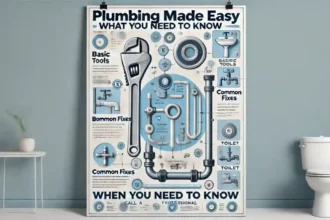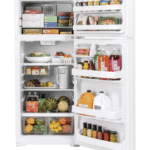Managing personal finances effectively is crucial, especially in today’s economic climate. According to Debt.com’s 2024 Budgeting Survey, 60% of Americans are living paycheck to paycheck, a significant increase from 50% in previous years. Interestingly, the same survey reveals that 20% more Americans are now using budgets compared to seven years ago, with 89% stating that budgeting has helped them get out or stay out of debt.
So, what budgeting tips would help you stay on track financially? This comprehensive guide offers actionable strategies to help you manage your finances effectively, reduce debt, and achieve your financial goals.
Quick Budgeting Tips to Stay on Track Financially
To get started, here’s a quick overview of actionable budgeting tips:
- Follow a structured budgeting method like the 50/30/20 rule or zero-based budgeting.
- Automate your savings and bill payments for consistency.
- Build an emergency fund to manage unexpected expenses.
- Use budgeting apps like Mint or YNAB for better tracking and insights.
- Address emotional spending by identifying triggers and creating healthier habits.
Keep reading for a deeper dive into what budgeting tips would help you to stay on track financially and learn how to apply them to your life.
7 Steps to Stay on Track Financially with Budgeting
1. Adopt a Structured Budgeting Method
A solid budgeting method simplifies your finances and gives you a clear roadmap for spending and saving.
The 50/30/20 Rule
This rule is a popular, straightforward way to allocate your after-tax income:
- 50% for necessities: Rent, groceries, utilities.
- 30% for discretionary spending: Hobbies, entertainment, dining out.
- 20% for savings and debt repayment.
For example, if you earn $4,000 monthly, allocate $2,000 to necessities, $1,200 to wants, and $800 to savings or debt. This method balances financial discipline with flexibility.
Zero-Based Budgeting
Every dollar you earn gets assigned a purpose in zero-based budgeting, leaving no room for guesswork. For instance:
- Income: $4,000
- Fixed expenses: $2,000
- Savings: $1,000
- Discretionary: $1,000
This method works well for those seeking maximum control over their finances.
2. Automate Your Finances
Automation ensures you consistently save and pay bills on time without needing to think about it.
How to Automate Your Budget
- Savings: Set up automatic transfers to savings accounts after each paycheck. Even small amounts, like $50 per week, can add up over time.
- Bills: Use online banking to schedule recurring payments for rent, utilities, or subscriptions.
Example: Automating a $300 monthly transfer to your vacation fund can accumulate $3,600 in a year effortlessly.
3. Build an Emergency Fund
Unexpected expenses like car repairs or medical bills can derail your finances. That’s where an emergency fund comes in.
How to Build an Emergency Fund
- Start with a $1,000 goal for immediate security.
- Save three to six months’ worth of living expenses over time.
- Funnel windfalls (e.g., tax refunds, bonuses) into your fund.
Example: If your monthly expenses are $2,500, aim for an emergency fund between $7,500 and $15,000.
4. Address Emotional Spending
Nearly 49% of Americans admit to emotional spending, which often undermines financial goals. Emotional triggers like stress or boredom can lead to impulsive purchases.
How to Curb Emotional Spending
- Identify Triggers: Reflect on situations that lead to unplanned spending.
- Create Alternatives: Replace shopping with healthy habits like exercising or journaling.
- Implement a Waiting Period: Before making a discretionary purchase, wait 24 hours to evaluate its necessity.
Example: If you’re tempted to buy a $200 gadget, wait a day to see if it’s still essential. Chances are, it won’t be.
5. Budget for Irregular Income
If you’re a freelancer, gig worker, or entrepreneur, fluctuating income makes traditional budgeting challenging.
Strategies for Irregular Income
- Set a Baseline Budget: Cover essential expenses first, like rent and utilities.
- Save During Good Months: When income is high, put extra money toward savings or debt repayment.
- Use Percentages: Allocate percentages of income (e.g., 60% essentials, 20% savings, 20% wants) instead of fixed amounts.
Example: If your income ranges from $3,000 to $5,000, ensure $1,800 (60%) always goes to necessities.
6. Leverage Technology for Smarter Budgeting
Apps and digital tools make managing your budget easier and more efficient.
Recommended Tools
- YNAB (You Need a Budget): Offers zero-based budgeting and real-time tracking.
- Mint: Tracks expenses and provides personalized budget insights.
- AI Tools: Predict spending patterns and suggest adjustments to stay on track.
- Blockchain Wallets: Ensure secure, transparent tracking of financial transactions.
These tools help eliminate guesswork and keep you informed about your financial health.
7. Plan for Big Expenses
Big purchases like laptops or home appliances can strain your budget without proper planning.
How to Save for Big Expenses
- Set a goal and timeline (e.g., saving $1,200 for a laptop in six months).
- Divide the total cost by the number of weeks until your goal.
- Save that amount weekly or monthly.
Example: Saving $200 monthly for six months ensures you can pay for the laptop without resorting to credit.
8. Monitor and Adjust Your Budget Regularly
A budget isn’t static—it should adapt to your changing circumstances.
Steps to Review Your Budget
- Check your actual spending against planned allocations monthly.
- Adjust for new expenses, such as a subscription or seasonal utility bills.
- Revisit your financial goals and ensure your budget aligns with them.
Example: If winter heating costs increase by $100, reduce discretionary spending to stay on track.
Other Issues to Watch For
- Over-Optimizing: Don’t make your budget too restrictive; it should allow for occasional indulgences.
- Ignoring Debt: High-interest debt should be prioritized alongside savings.
- Skipping Fun: Budgeting shouldn’t feel like deprivation. Allocate funds for hobbies or small treats to stay motivated.
Wrap Up – What Budgeting Tips Would Help You Stay on Track Financially?
Budgeting is your ticket to financial freedom and stability. By adopting structured methods, automating finances, curbing emotional spending, and leveraging modern tools, you can stay on track financially while achieving your goals. Remember, the key to success is consistency, flexibility, and regular evaluation.
Are you ready to transform your financial habits? Choose one tip from this guide and apply it today! Share your experiences or challenges in the comments below, and explore our related posts for more budgeting insights. Let’s build a brighter financial future together.













Great article! Staying on track financially requires discipline and strategic planning. Some key budgeting tips that have helped me include meticulously tracking income and expenses, setting clear financial goals, and prioritizing essential spending. Automating savings, identifying areas to cut back, and regularly reviewing my budget have also made a big difference. I’ve found that using the zero-based budgeting method and budgeting tools really help in monitoring progress effectively. Ultimately, understanding where money is going and making conscious decisions ensures financial stability. Thanks for sharing these valuable insights!
Thank you for your thoughtful comment! I’m glad you found the article helpful. Your budgeting tips are spot on—tracking income and expenses, setting goals, and automating savings are great strategies for financial stability. Zero-based budgeting is indeed an excellent method for staying on top of finances. It’s always inspiring to hear how different approaches work for people. Thanks for sharing your insights!
This is a fantastic guide to budgeting! Managing finances doesn’t have to feel overwhelming—with the right approach, financial stability is within reach. I completely agree that setting clear financial goals makes budgeting easier and more motivating. Understanding budgeting basics, prioritizing expenses, and building good financial habits are essential for staying on track. I also appreciate the breakdown of different budgeting methods, like the envelope system and zero-based budgeting—finding the right fit is key. Thanks for sharing these valuable insights!
Thank you, Albert! I’m so glad you found the guide helpful. You’re absolutely right—budgeting becomes much more manageable with the right mindset and strategies. Setting clear financial goals and developing good financial habits are truly game-changers. I agree that choosing the right budgeting method, whether it’s the envelope system, zero-based budgeting, or another approach, is key to long-term success. Appreciate your thoughtful insights!
Great read! One key tip that has helped me is prioritizing essential expenses like housing, food, and healthcare before discretionary spending. Cutting back on things like takeout and unused subscriptions has made a big difference. Also, planning for unexpected costs, like car repairs or medical bills, has helped me stay on track financially. Thanks for sharing these valuable insights!
Thank you! I’m glad you found the article helpful. Prioritizing essential expenses is definitely a smart approach—it ensures financial stability while helping to manage discretionary spending more effectively. Cutting back on unnecessary costs and planning for unexpected expenses are great strategies for staying on track. It’s amazing how small adjustments can make a big difference in financial health. Appreciate you sharing your insights!
Really enjoyed this article! One thing I’ve found super helpful with budgeting is how it gives me control over my finances. Instead of looking back and wondering where all my money went, I can plan ahead and make intentional choices. It also makes it easier to spot areas where I need to adjust my spending before things get out of hand. Budgeting has definitely been a game-changer for me!
Thank you! I’m so glad you enjoyed the article. You’re absolutely right—budgeting is all about taking control and making intentional financial choices. It’s great to hear that it’s been a game-changer for you! Spotting areas for adjustment early on can make such a big difference in staying on track. Appreciate your insights!